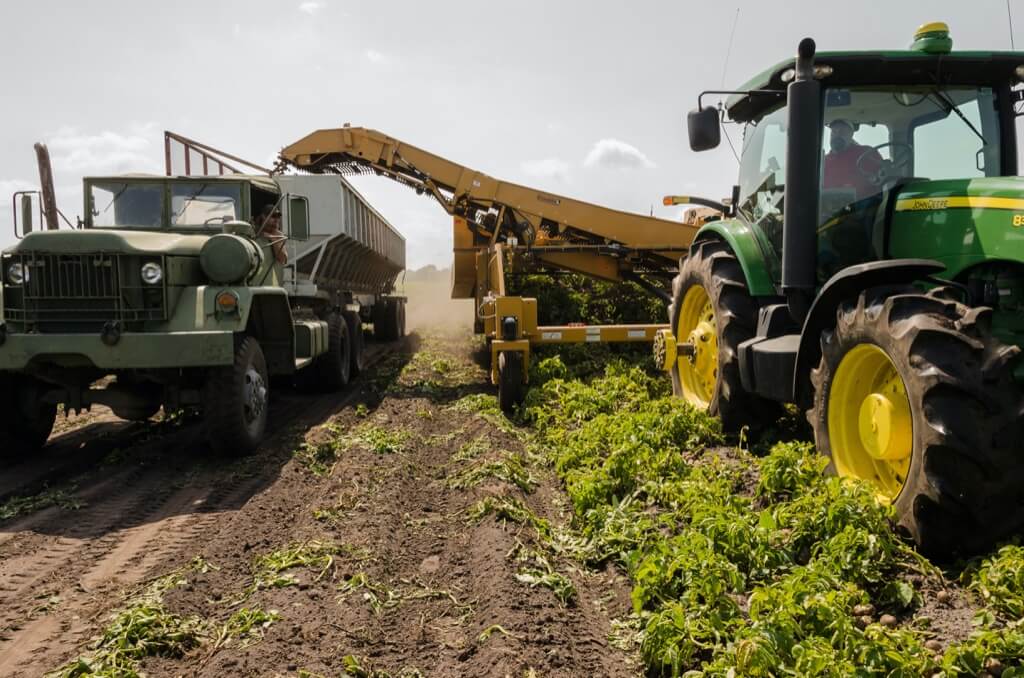Innovative Practices Shaping Tomorrow’s Food Systems
Sustainable food production sits at the nexus of environmental well-being and human health. Today, as the global population burgeons, the demand for food is increasing, setting off a chain of challenges that require immediate addressal. Here’s a closer look at some groundbreaking innovations that are reshaping how food is produced sustainably:
- Precision Agriculture: By integrating modern technology into traditional farming, precision agriculture tailors farming techniques to individual crops. This method optimises water usage, reduces waste, and increases crop yields.
- Alternative Protein Sources: As meat consumption significantly impacts the environment, alternative protein sources such as plant-based meats and insect farming are becoming more prevalent. Not only do they have a smaller carbon footprint, but they also use fewer resources overall.
- Aeroponic and Hydroponic Systems: Traditional soil-based farming often uses more water and space. In contrast, aeroponic and hydroponic systems use mist or water enriched with nutrients, reducing the need for soil and excessive water.
Challenges Hindering Progress
Despite these innovations, challenges persist in the pursuit of truly sustainable food production:
- Economic Viability: Many sustainable practices come with high initial costs. For farmers, especially those in financially constrained situations, transitioning can be daunting.
- Resistance to Change: Traditional farming methods are deeply rooted in many communities. Overcoming the inertia and convincing farmers to adopt new techniques is no small feat.
- Supply Chain Complexities: Even if a farm adopts sustainable practices, there are often inefficiencies and wastage in the distribution and retail phases. Achieving sustainability requires a holistic approach that extends beyond just farming.
A Path Forward for You and Your Choices
You, as a consumer, play a pivotal role. By opting for sustainably produced foods, you endorse the value of these methods and help in shaping market demand. Being informed about the sources of your food, and understanding the implications of your choices, ensures that the market gradually leans towards more sustainable practices.
Challenges Disrupting Food Production
Food production today faces several pressing challenges. One of the most evident threats to food security arises from unsustainable production practices. Over-fishing, for instance, depletes marine life, while soil erosion and water shortages adversely affect agriculture. The looming specter of climate change exacerbates these issues. As global temperatures rise, the increased frequency of storms, droughts, and extreme weather events will significantly impact crop yields and aquatic ecosystems.
Factors Influencing Food Sustainability
Food sustainability doesn’t just revolve around ensuring there’s enough to eat. It’s a multifaceted concept that extends beyond mere food security. Nutrition and health stand as pivotal elements, ensuring that people don’t just consume food, but they benefit from what they consume. Social justice ties into this, highlighting the importance of equitable food distribution and the ethics of production.
Moreover, the preservation of natural resources is intrinsically linked to sustainable food production. Practices that deplete the Earth’s resources without replenishing them jeopardize the ability to produce food for future generations. Additionally, animal welfare emerges as a significant concern, especially when discussing meat production and consumption.
Innovative Solutions for Sustainability
Addressing these challenges requires innovative solutions. For instance, enhancing water quality stands as a key area of focus. Effective measures include fencing off waterways to prevent contamination and turning to organic farming methods. By eschewing synthetic fertilisers and pesticides, farms can significantly reduce their environmental footprint. Moreover, efficient water usage, reducing effluent, and applying effluent to land can further promote sustainability.
Precision Farming Software
Harnessing the power of precision agriculture becomes much easier with the right software. Such tools allow farmers to monitor, analyze, and manage their crop production using real-time data. By integrating with various sensors and devices, these software solutions can guide farmers to optimize water usage, reduce waste, and enhance crop yields.
Alternative Protein Databases
As the demand for sustainable protein sources rises, databases cataloging alternative proteins can be invaluable. These platforms provide insights into plant-based meats, insect farming, and other novel protein sources. By accessing comprehensive information on nutrition, environmental impact, and production methods, one can make informed choices.
Hydroponic and Aeroponic Kits
For those keen on adopting aeroponic or hydroponic farming, starter kits can be a game-changer. These kits provide all necessary equipment and guidance to set up soil-less farming systems. They are especially beneficial for urban farmers or those with limited farming space, enabling sustainable food production in non-traditional settings.
Organic Farming Resource Portals
Embracing organic farming methods is easier with access to dedicated resource portals. These platforms offer a plethora of information, from avoiding synthetic fertilisers and pesticides to managing soil health. They can also provide community support, connecting new farmers with seasoned organic farming professionals.
Climate Impact Monitoring Platforms
Understanding the influence of climate change on farming is crucial. Climate monitoring tools provide data on local weather patterns, forecast extreme weather events, and give insights into long-term climate trends. By staying informed, farmers can adapt their strategies to ensure consistent yields even in the face of unpredictable weather conditions.
Steering Towards a Sustainable Tomorrow
In our rapidly evolving world, Sustainable Food Production stands not just as a term but as a call to action, encompassing challenges and innovations that intertwine with our daily lives. The hurdles, from climate-induced disruptions to traditional resistance, are indeed profound. Yet, they’re matched by the ingenuity and resilience witnessed in precision farming, alternative proteins, and organic practices.
For those grappling with these challenges, whether you’re an established farmer or an urban agricultural enthusiast, it’s vital to remember that you’re not alone. As we’ve explored the vast landscape of sustainable food production, we understand the intricacies, the struggles, and the victories that define this path. Your efforts, combined with the right tools and information, pave the way for a more sustainable and food-secure future.

